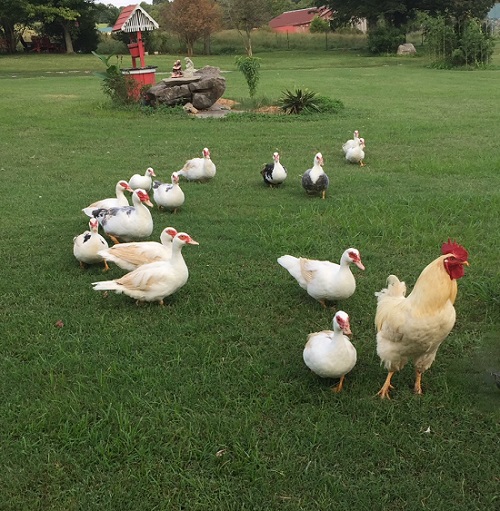Scarce as Hens’ Teeth
 This photo, with lots of ducks and a rooster, has no hens. Hens are as scarce as hens’ teeth here.
This photo, with lots of ducks and a rooster, has no hens. Hens are as scarce as hens’ teeth here.
Scarce as hens’ teeth means very scarce.
What we seek is:
- Rare
- Impossible or almost impossible to find
We seldom find a:
- Mud puddle in the desert
- Polar bear in Kentucky
- Pessimist at an optimists’ meeting
Hens have no teeth.
That fact emphasizes how scarce an item can be. Finding what we want is like looking for a needle in a haystack. However, as with mud puddles in the desert, we may find them once in a blue moon.
We often give greater value to scarce items.
Supply and demand teach that demand (and prices) go up when supply goes down. We see that with:
- One-of-a-kind art
- Antiques
- Limited editions of anything
Truth frequently feels as scarce as hens’ teeth.
Everywhere we turn, we find people trying to deceive us. Scams appear:
- On our phones
- In the mail
- During business deals
Such occurrences make us mad as a wet hen.
Occasionally, we wonder if truth exists anymore.
However, one truth never fails.
God, who is truth, offers each of us grace and truth through the gift of Jesus. Hang on to that truth and never let go.
“The Word became flesh and made his dwelling among us. We have seen his glory, the glory of the one and only Son, who came from the Father, full of grace and truth” (John 1:14 NIV).
Thanks to Emily Akin for the suggestion.
Do you have an expression you want explained or a thought about this one? If so, please comment.
Subscribe to receive my weekly posts by email and receive a free copy of “Words of Hope for Days that Hurt.”
If you enjoyed this post, please share it with your friends.
 Chickens come home to roost.
Chickens come home to roost. My mother, sister, cousin, and I were fixing to eat when I took this picture. We planned to enjoy both our food and this great view of
My mother, sister, cousin, and I were fixing to eat when I took this picture. We planned to enjoy both our food and this great view of